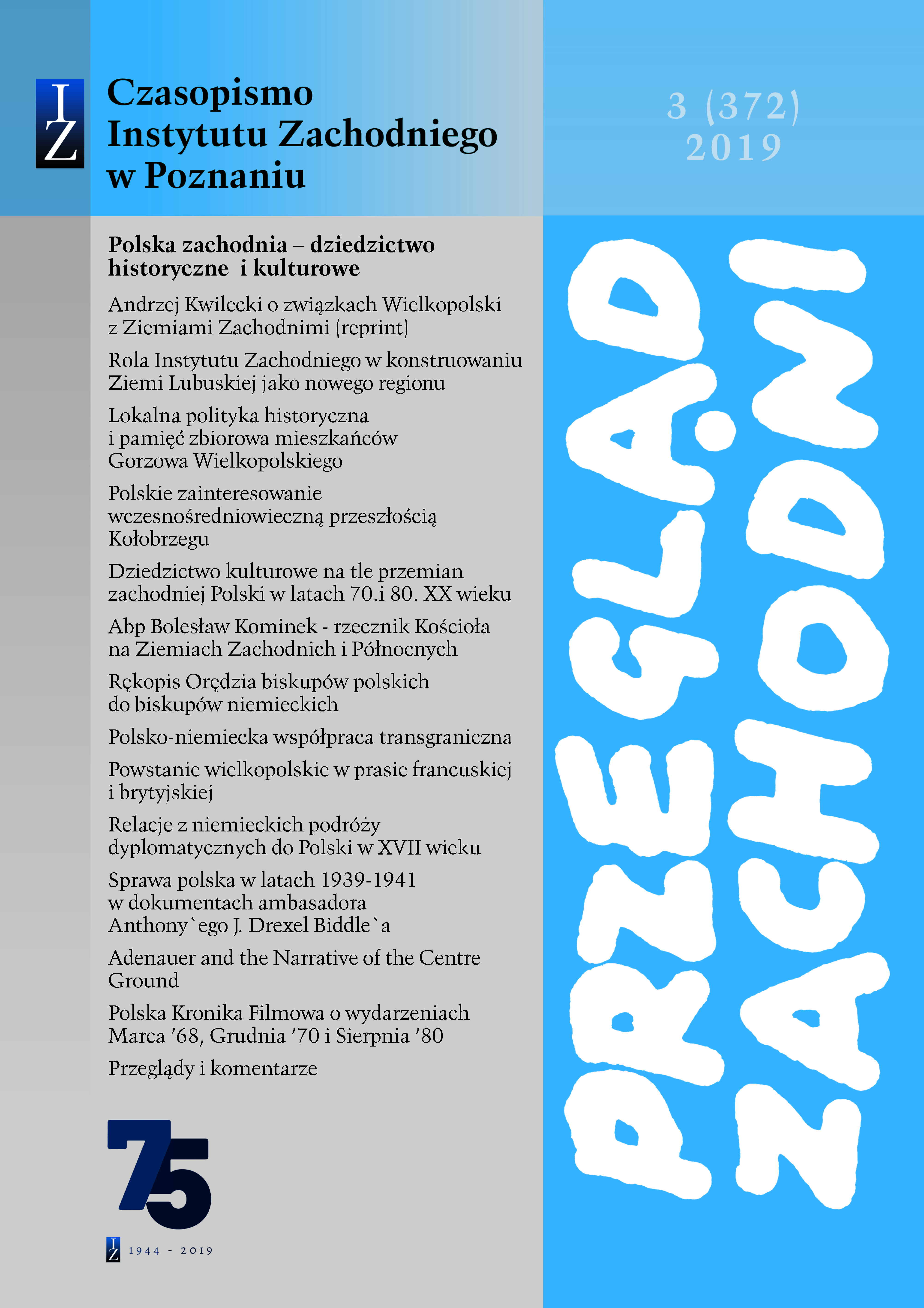Sprawa granic Polski w latach 1939-1941 w świetle dokumentów ambasadora Anthony`ego J. Drexel Biddle’a
The question of Poland’s borders from 1939 to 1941 in the documents of Ambassador Anthony J. Drexel Biddle
Author(s): Krzysztof SiwekSubject(s): WW II and following years (1940 - 1949)
Published by: Instytut Zachodni im. Zygmunta Wojciechowskiego
Keywords: Poland’s borders; Anthony J. Drexel Biddle; United States; Polish Government in Exile; II World War; international policy; Polish-Soviet relations
Summary/Abstract: The purpose of the article is to present the question of Poland’s borders in the years 1939-1941 from the perspective of Anthony J. Drexel Biddle, the U.S. Ambassador to the Polish Government in Exile, based on his diplomatic papers stored in American archives. Biddle’s continued service with the government of Prime Minister Władysław Sikorski since 1939 implied the U.S. recognition of Poland’s political existence despite the American neutrality towards the occupation of Polish territory by Germany and the USSR. The author proposes the thesis that this unique “ambassador of the oppressed nations” dedicated his special attention to Poland, perceived as a “political barometer” of Europe with an impact on the German-Soviet relations. Therefore, Biddle’s wartime papers indicate that the problem of Poland’s borders constituted a considerable obstacle to the U.S. wartime policy that envisaged engaging the Soviet Union as an ally against Germany. These papers show that the Polish government’s dependence upon Western allies, who since 1939 challenged Poland’s prewar eastern border, negatively influenced the content and political consequences of the Polish-Soviet pact of 1941. Contrary to Sikorski’s hopes for the U.S. support in territorial dispute with the Soviets, ambassador Biddle was critical of Polish efforts to obtain American and British guarantees of borders. He shared the British claim for restitution of Poland only within the so called “ethnographic borders” represented by the Curzon Line in the east that would be “compensated” by the annexation of still undefined German territories. Sikorski’s political ideas regarding Poland’s security against both Germany and Soviet Russia were thus met with suspicion by Biddle, who acted on behalf of American diplomacy which apparently feared the separate German-Soviet peace on the one hand, and Poland’s turning away from the Western allies on the other. It appears from Biddle’s diplomatic correspondence that the United States did not intend to guarantee any territorial designs of Sikorski’s government, since Polish claims contradicted the objectives of the foreign policy of the Anglo-Saxon powers, which assigned a crucial role in Central-Eastern Europe to Soviet Russia, not Poland. The author used abundant diplomatic correspondence gathered at The National Archives and Records Administration, at the Franklin D. Roosevelt Library and in the collections of the Historical Society of Pennsylvania in the USA.
Journal: Przegląd Zachodni
- Issue Year: 372/2019
- Issue No: 03
- Page Range: 191-220
- Page Count: 30
- Language: English, Polish

